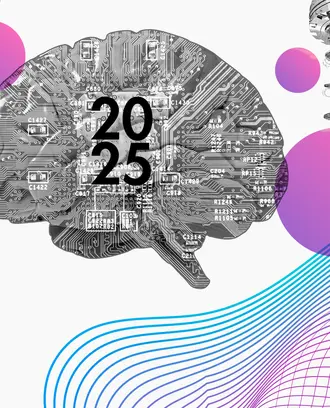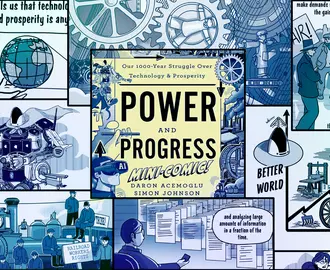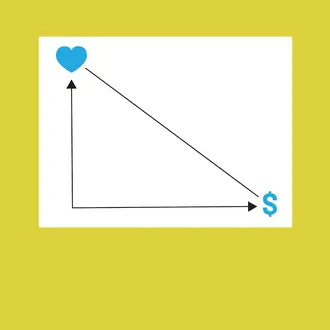Economics
Economist Claudia Sahm has a better way to handle recessions
A veteran of the Federal Reserve talks about her dedication to data, the costs of speaking up, and how her “Sahm rule” could improve the impact of stimulus checks.
Claudia Sahm has lived several lives in the field of economics, and she’s only getting started.
She logged 12 years at the Federal Reserve, where she developed what has come to be known as the “Sahm rule,” a simple, quick, real-time indicator of a recession based on labor market conditions. She also served on the Council of Economic Advisors to the White House during the Obama administration.
As director of macroeconomic policy at the Washington Center for Equitable Growth, Sahm worked with Congress on fiscal relief during the COVID crisis. During that time, she caught the attention of the insular economics establishment with a blog post, “Economics is a disgrace,” that detailed the bullying, harassment, elitism, and exclusion she witnessed and experienced working in the field.
Now, as founder of Sahm Consulting, she shares data-driven analysis on monetary and fiscal policy and forecasting on her popular Stay-at-Home-Macro Substack newsletter, where her tagline reads, “My goal is to make economic policy and macroeconomics better.” She was named to Barron’s 100 Most Influential Women in U.S. Finance two years running.
Sahm is a frequent guest on Bloomberg and other news outlets, as well as on the Masters in Business and At the Money podcasts hosted by equities analyst Barry Ritholtz. Sahm and Ritholtz presented together at the 2024 MIT Sloan Investment Conference in February.
We spoke with Sahm about her dedication to data, the costs of speaking up, and her (ultimately unsuccessful) struggle to keep her direct messages open on X (formerly Twitter). The interview has been edited for length and clarity.
What skill or ability has served you well in your work?
My contributions as an economist rest on data, and that's a skill I have developed from the start. All my analysis and policy advice are data driven, which requires more than using data. We must understand how the data [is] collected, who [it] represent[s], and what exactly is being measured (or not). The quality matters.
My PhD is in economics (Michigan, 2007) and some of my related course work was in survey methodology, which is uncommon among economists. For my research and policy, I have designed survey questions — most importantly on fiscal relief like stimulus checks in recessions — because the existing data were insufficient. Above all else, I respect the data and work hard to elevate the voices of people behind it.
What is the most difficult lesson you’ve learned in your professional life? In what unexpected way did you grow from it?
We all learn the most from our mistakes. Being outspoken gets me in endless amounts of trouble, and there are times I would go back and do it differently. Other times I would do it again, but with eyes wide open about the costs. I did not expect to be self-employed within a year of leaving the Fed. It was a painful experience and a necessary one for my own growth. I have learned to choose my battles more wisely. I have several passions in my work, and I am trying to only pursue one at a time and pace myself. I am an eternal optimist, but there are some battles I simply cannot win (or at least not yet).
How do you keep track of new ideas?
I am constantly looking for new ideas, especially ones that contradict my own thinking. As someone who is constantly asked about where the economy is headed or what are the best fiscal or monetary policies, I need to understand how I could be wrong. That's hard to do on my own, so I find others who have different takes. It's hard to engage with people who disagree with you, but it's an essential practice to develop.
What routine keeps you happy, healthy, and productive?
My kids are everything to me and keep me grounded. My teen asked me soon after the Sahm rule attention, "Mom, are you worried about being a one-trick pony?" Wow. But she's right. I want to be more than a rule, and I certainly want to be a mom first. My heart is in the Midwest, where I grew up, and talking with my mom in Indiana every day helps me get my head out of DC. My husband — I got remarried during COVID — has held my hand through some very tough times during the past four years. I am very hard on myself, and his go-to phrase is "cut yourself some slack." Finally, I go on long walks — shoe leather economics — often listening to podcasts or bad (according to my teen) music.
What are your most useful sources of information?
The list is long. I listen to podcasts every day like Odd Lots, Masters in Business, Bloomberg Surveillance, Macro Musings, Off Kilter, and more. I read lots of newsletters and Substacks, both economics-related and others. X/Twitter, especially #fintwit and #EconTwitter, are my faves for information and links to data and research. On X and other social media, I learn an incredible amount from regular people who share their ideas and questions with me. But the toxicity on X got too hard to stomach. I recently had to stop my public X account, though I continue to lurk and read with a private account.
What is one thing you have read, watched, or listened to that informs your work today?
I am dedicated to good economic policy that serves all people. I read the biography of Frances Perkins, “The Woman Behind the New Deal,” early in the pandemic as I was working with Congress on the relief packages, including the stimulus checks and enhanced jobless benefits. Perkins was the architect of the New Deal and FDR's Secretary of Labor. She pushed through an immense amount of good for workers. She did all that through a series of professional and personal challenges. Perkins is a true hero, and that inspiration was well-timed for me.
At MIT Sloan, we talk about ideas made to matter — ideas that are carefully developed and have meaningful impact in the world. In that context — what is your idea made to matter?
Related Articles
Most people would say that my big idea is the Sahm rule — a highly accurate recession indicator that I created — but that's not exactly the one I would pick.
My big idea is that we need better ways to fight recessions as soon as they start, based on economic conditions, not politics. These are referred to as automatic stabilizers, and while I did not create that concept, in early 2019, I did develop the idea that the government should send out stimulus checks automatically at the start of a recession. The Sahm rule, which is based on an increase in the unemployment rate, is a trigger to send out the checks, but it's the checks that matter.
Research, including my own on the Great Recession, shows that stimulus checks are a highly effective way to kickstart a recovery and provide relief to families, by allowing them to spend, save, or pay down debt. Congress enacting the automatic program ahead of recession allows for the good design of the checks and preparations for effective administration. COVID-19 struck before this idea could become reality, but as an expert on stimulus checks, I had the privilege to work with policymakers from the CARES Act to the American Rescue Plan. I am now focused on how to improve programs, not just stimulus checks, for future recessions.
Read next: The former IBM CEO on diversity and the discomfort of good ideas




